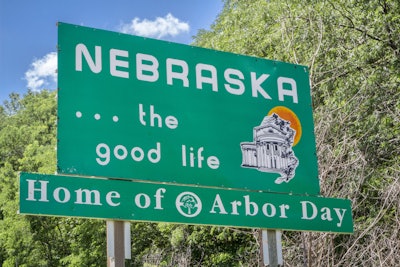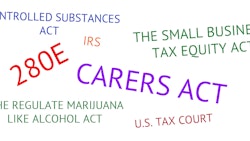
Editor's Note: You likely have heard by now that Nebraska is suing Colorado for its marijuana laws, alleging that the legalization of recreational marijuana is unconstitutional under the Supremacy Clause of the U.S. Constitution. Among Nebraska officials' chief complaints is that marijuana is being sold to residents of Nebraska (which maintains marijuana prohibition) and brought into the state–illegally. Yet, Nebraska is being bit hypocritical here, as the state is apparently suing Colorado for something it does itself–though involving alcohol (and alcohol prohibition) instead of marijuana (and with far more devastating effects). Here, Nebraska attorney Dan Stockmann shares his insights into the situation.
 By Dan Stockmann, Esquire
By Dan Stockmann, Esquire- By Dan Stockmann, Esquire
“We have had a significant increase in the amount of cases and incidences with marijuana coming across from Colorado,” Deuel County, Neb., Sheriff Adam Hayward told KETV Omaha. “One in every five cars, we are now finding something in there.”
In fact, the number of adults caught crossing the border with marijuana has reached an all-time high. Police are now catching a year’s worth of misdemeanor violators in just four months. “We are paying for them to be housed. We are paying for them to be fed. We are paying for their medical expenses, which a lot of them do have," said Hayward. "And then a lot of them, even though they have money to buy drugs, they don't have money to pay for an attorney. Therefore, the county has to pay for the public defender."
Though one might find officer Hayward’s comments rather amusing, considering there is nowhere in the country to find a $60 criminal defense lawyer (referring to the fact that by law a Nebraska adult can only purchase a quarter ounce (about $60) of marijuana at any Colorado pot shop), it still does not sooth the hypocrisy of the legalization of other, more dangerous substances.
For example, the tiny town of Whiteclay, Neb., has a population of 10 residents, yet it has the greatest beer sales per capita of any other U.S. town. Whiteclay has four off-sale beer stores that sold 3.6 million cans of beer, or almost 10,000 cans of beer a day, in 2013. How is that possible?
It’s possible because Whiteclay is located close to the border of South Dakota, near the Oglala Sioux (Lakota) Indian Nation on the Pine Ridge Reservation. This is where the plot thickens: Pine Ridge, S.D., is 100-percent alcohol free. It maintained a prohibition on sales and possession since 1889. The reason is that in the early stages of the town’s formation, illegal whisky peddlers had been pushing alcohol on the tribe. In an attempt to try to save the nation, Congress created a dry buffer zone, which also happened to include Whiteclay as part of the reservation.
In 1904, however, liquor lobbyists successfully convinced then-President Teddy Roosevelt to open up 49 of the 50 square miles to a land grab by settlers. This was in direct protest to the Lakota and the federal Indian Agent who was given control over Pine Ridge. As a result, Whiteclay became bootlegger central. Bootleggers made a killing by selling alcohol to the Lakota. By the 1950, two bars became licensed in Whiteclay, and four alcohol stores have opened for business.
Lakota activists have repeatedly tried to reverse Roosevelt’s decision, but their attempts have been shot down. Dave Heineman, former Nebraska governor, even expressed that there is simply nothing to be done, since the vast majority of customers come from out of state, i.e., South Dakota. Though he could direct Nebraska’s state liquor licensing officials to no longer license off-sales beer stores, he refused to do so. Could it be that the state cares more about pulling in roughly $350,000 to $400,000 a year in alcohol taxes from Whiteclay alone than about those suffering in the next town over? After all, Pine Ridge is a reservation desolated by alcohol, with an estimated 80 percent of its households and 60 percent of individuals affected by alcoholism, and one quarter of the babies born suffering from fetal alcohol syndrome.
The point is not to reinstate prohibition on alcohol, but to demonstrate how it always fails. And also to point to Nebraska's hypocrisy. Nebraska shouldn’t be complaining about Colorado’s marijuana laws causing their state to tailspin into debt while openly and unapologetically profiting from the Lakota Nation’s alcohol prohibition.
Dan Stockmann is a criminal defense attorney with Stockmann Law, a nationally recognized law firm focused on defending its clients from drug-related charges. Stockmann Law helps people who have been unlawfully targeted by law enforcement as they travel across Nebraska.
Feature image: © Marekuliasz | Dreamstime.com - Nebraska Welcome Road Sign Photo


























